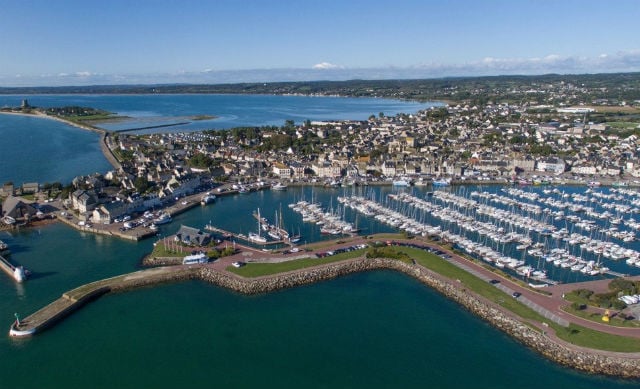❤️ l’annonce des résultats ❤️????????????⚓️ #SVLH #ValDeSaire #Cotentin #Manche #Normandie
Cc @bernstephane @MorganeGroupe @CotentinUnique @MancheCD50 @fbleucotentin @LaPresseManche pic.twitter.com/X1zUWoKgLp
— Saint-Vaast-la-Hougue – Compte officiel (@SVLH_VP19) June 27, 2019
Located on the east coast of the Cotentin, the village of Saint-Vaast-la-Hougue in north west France is described as a land of sailors, and at low tide, the oyster beds provide a link between the French mainland and another jewel: the island of Tatihou, a unique point of view for painters for more than two centuries.
Félicitations à Saint-Vaast-la-Hougue @SVLH_VP19 élu #VillagePréféré des français 2019.
J’aime la #Normandie ❤️ pic.twitter.com/dprGS7RT2w
— Y. Jacob Celik ⭐️⭐️ (@YJacobCelik) June 26, 2019
 Photo: Depositphotos
Photo: Depositphotos[ #VillagePrefere ] Ce soir dès 21h sur @France3tv découvrez si Saint-Vaast-La-Hougue a été élu @villageprefere des Français ! ? #Normandie #NormandieRegionMonde pic.twitter.com/jLnxDw7VMf
— Normandie Tourisme (@Normandie) June 26, 2019
 Map: Google
Map: Google


 Please whitelist us to continue reading.
Please whitelist us to continue reading.
Member comments